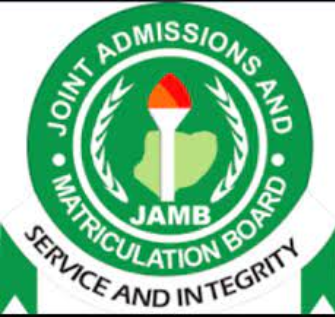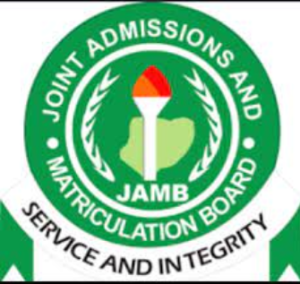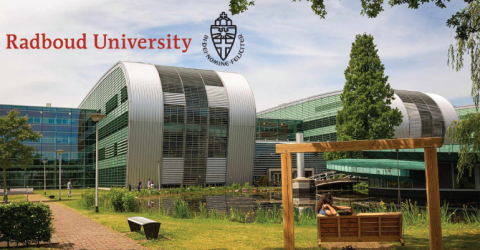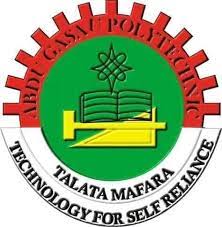JAMB Government Syllabus 2023/2024
Hello !!! My opportunitynotify.com readers We are aware that you are searching for, JAMB Government Syllabus 2023/2024, JAMB Government, Government Syllabus for JAMB 2023/2024
These are all you find here
- JAMB Government Syllabus 2023/2024
- How To Use Jamb Syllabus To Pass Jamb
- How Much Is The UTME Syllabus
This JAMB Syllabus for Government aims to prepare the candidates for the Unified Tertiary Matriculation Examination (UTME).
JAMB Syllabus for Government
> Jamb Syllabus for Economics 2023,
Jamb Syllabus for Biology 2023/2024,
Jamb Syllabus for 2023/2024,
Jamb Syllabus for English 2023/2024,
Jamb Syllabus for Literature 2023,
Jamb Syllabus for Crs 2023,
General Objectives | JAMB Syllabus for Government/Important Points to Note on JAMB Registration 2023/2024
It
is designed to test their knowledge in Government, with a view to
determining their suitability for placement in institutions of higher
learning in Nigeria. These objectives are to:
- appreciate the meaning of government;
ii. analyse the framework and specify the institutions of government;
iii. appreciate the basic principles of democratic governance and their application in Nigeria;
iv. explain the concept of citizenship and define the duties and obligations of a citizen;
v. appreciate the process of political development in Nigeria;
vi. evaluate the political development and problems of governance in Nigeria;
vii. understand the determinants and dynamics of foreign policy as it relates to Nigeria;
viii. assess the role of Nigeria as a member of the international community and the workings of international organizations.
Section 1: Elements of Government
Topic 1: Basic Concepts in Government
- Power, Authority, Legitimacy, Sovereignty;
b. Society, State, Nation, Nation-State;
c. Political Processes; Political Socialization, Political Participation, Political Culture.
Objectives
Candidates should be able to:
i. identify the fundamental concepts in governance;
ii. analyse various political processes.
Topic 2: Forms of Government
Monarchy, Aristocracy, Oligarchy, Autocracy, Republicanism, Democracy definitions, features, merits and demerits.
Objectives
Candidates should be able to:
i. distinguish between different forms of government.
Topic 3: Arms of Government
- The Legislature – types, structure, functions, powers;
b. The Executive – types, functions, powers;
c. The Judiciary – functions, powers, components.
d. Their relationships
Objectives
Candidates should be able to:
i. identify the duties and obligations of the various arms of government and their agencies;
ii. relate each arm to its functions;
iii. appreciate how these arms interrelate.
Topic 4: Structures of Governance
- Unitary – features, reasons for adoption, merits and demerits
b. Federal – features, reasons for adoption, merits and demerits
c. Confederal – features, reasons for adoption, merits and demerits
Objectives
Candidates should be able to:
i. compare the various political structures of governance.
Topic 5: Systems of Governance
Presidential, Parliamentary and Monarchical.
Objectives
Candidates should be able to:
i. distinguish between the different systems of governance.
Topic 6: Political Ideologies
Communalism, Feudalism, Capitalism, Socialism, Communism, Totalitarianism, Fascism, Nazism.
Objectives
Candidates should be able to:
i. differentiate between the major political ideologies;
ii. contrast modes of production.
Topic 7: Constitution
Meaning, Sources, Functions, Types – Written, Unwritten, Rigid and Flexible.
Objectives
Candidates should be able to:
i. Define and identify sources and functions of constitutions;
ii. compare the nature of constitutions.
Topic 8: Principles of Democratic Government
Ethics
and Accountability in Public Office, Separation of Power, Checks and
Balances, Individual and Collective Responsibility, Constitutionalism,
Rule of Law, Representative Government.
Objectives
Candidates should be able to:
i. identify the principles of democratic government;
ii. determine the application of these principles.
Topic 9: Processes of Legislation
Legislative Enactments – acts, edicts, bye-laws, delegated legislation, decrees.
Objectives
Candidates should be able to:
i. analyse the processes involved in the making of laws.
Topic 10: Citizenship
- Meaning, types;
b. Citizenship rights;
c. Dual citizenship, renunciation, deprivation;
d. Duties and obligations of citizens;
e. Duties and obligations of the state.
Objectives
Candidates should be able to:
i. differentiate between the various methods of acquiring citizenship;
ii. specify the rights and responsibilities of a citizen;
iii. assess the obligations of the state.
Topic 11: The Electoral Process
- Suffrage – evolution, types;
b. Election – types, ingredients of free and fair election;
c. Electoral System – types, advantages and disadvantages of each;
d. Electoral Commission – functions, problems.
Objectives
Candidates should be able to:
i. distinguish the different types of franchise
ii. identify and explain the types of electoral systems
iii. analyse the various electoral processes.
Topic 12: Political Parties and Party Systems
- Political parties – Definition, Organization, functions.
b. Party Systems – Definition, organization, functions.
Objectives
Candidates should be able to:
i. assess the role of political parties;
ii. distinguish between types of party systems.
Topic 13: Pressure Groups
- Definition, types, functions and modes of operation.
b. Differences between Pressure Groups and Political Parties.
Objectives
Candidates should be able to:
- evaluate the functions and the modus operandi of pressure groups;
ii. distinguish between pressure groups and political parties.
Topic 14: Public Opinion
- Meaning, formation and measurement.
b. Functions and limitations.
Objectives
Candidates should be able to:
- compare methods of assessing public opinion;
ii. assess the functions of public opinion;
iii. analyse the limitations of public opinion.
Topic 15: The Civil Service
Definition, characteristics, functions, structure, control and problems.
Objectives
Candidates should be able to:
i. analyse the significance of civil service in governance.
Section 2: Political Development in Nigeria
Topic 1: Pre-Colonial Polities
Pre-jihad Hausa, Emirate, Tiv, Igbo, Yoruba
a. Their structural organization;
b. The functions of their various political institutions.
Objectives
Candidates should be able to:
i. appreciate the effectiveness of the pre-colonial political systems;
ii. compare pre-colonial systems of governance.
Topic 2: Imperialist Penetration
- The British process of acquisition – trade, missionary activities, company rule, crown colony, protectorate;
b. The British colonial administrative policy – direct and indirect rule;
c. The French colonial administrative policy – assimilation and association;
d. Impact of British colonial rule- economic, political, socio-cultural;
e. Comparison of British and French colonial administration.
Objectives
Candidates should be able to:
- trace the processes of imperialist penetration;
ii. assess the impact of British and French policies;
iii. distinguish between British and French colonial practices.
Topic 3: Process of Decolonization
- Nationalism – Meaning, Types;
b. Nationalist Movements – emergence, goals, strategies; - Nationalist Leaders – Herbert Macaulay, Nnamdi Azikiwe, Obafemi
Awolowo, Ahmadu Bello, Ladipo Solanke, Aminu Kano, J. S. Tarka, Tafawa
Balewa and others;
d. Emergence of nationalist parties;
e. Influence of external factors.
Objectives
Candidates should be able to:
- evaluate the process of decolonization;
ii. assess the roles of nationalist leaders and parties;
iii. assess the impact of external forces and ideas (Pan-Africanism, Back-to-Africa Movements, Second World War etc).
Topic 4: Constitutional Development in Nigeria
- Hugh Clifford Constitution (1922)
b. Arthur Richards Constitution (1946)
c. John Macpherson Constitution (1951)
d. Oliver Lyttleton Constitution (1954)
e. Independence Constitution (1960)
Their features, merits and demerits.
Objectives
Candidates should be able to:
i. compare the various constitutional developments.
Topic 5: Post – Independence Constitutions
1963, 1979, 1989 and 1999- characteristics and shortcomings.
Objectives
Candidates should be able to:
i. assess the workings of the various constitutions.
Topic 6: Institutions of Government in the Post-Independence Nigeria
- The Legislative – structure, functions and working.
b. The Executive – structure, functions and workings.
c. The Judiciary – structure, functions and workings.
Objectives
Candidates should be able to:
- evaluate the operations of the arms of government and their
agencies, e.g the civil service, armed forces, police, courts and
others.
Topic 7: Public Commissions Established by the 1979 and Subsequent Constitutions
The
Civil Service Commission, the Public Complaints Commission, the Electoral
Commissions, National Boundary Commission and others – objectives
functions and problems.
Objectives
Candidates should be able to:
i. evaluate the operations of public commissions;
ii. assess the problems of the Public Commissions and their constraints.
Topic 8: Political Parties and Party Politics in Post-Independence Nigeria
- First Republic
b. Second Republic
c. Third Republic
d. Fourth Republic
– Evolution, membership spread, structure etc.
Objectives
Candidates should be able to:
i. contrast political processes in the republics;
ii. evaluate the ideologies, structure and composition of the political parties.
Topic 9: The Structure and Workings of Nigerian Federalism
- The rationale for a Federal System;
b. Tiers of government and their relationship;
c. Creation of States – 1963, 1967, 1976, 1987, 1991, 1996;
d. Problems of Nigerian Federalism – census, revenue allocation, conflicts, etc. solutions e.g. Federal character, etc.
Objectives
Candidates should be able to:
i. examine the workings of Nigerian federalism;
ii. identify its problems;
iii. evaluate the corrective measure adopted.
Topic 10: Public Corporations and Parastatals
- Definition, types, purpose and functions;
b. Finance, control and problems;
c. Deregulation, privatization, commercialization – objectives, features, merits and demerits;
d. Comparison between public corporations and parastatals.
Objectives
Candidates should be able to:
i. examine the operations of public corporations and parastatals;
ii. identify the processes involved in privatization and commercialization;
iii. assess the economic importance of privatization and commercialization.
Topic 11: Local Government
- Local government administration prior to 1976;
b. Features of local government reforms (1976, 1989) – structure, functions, finance and inter-governmental relations;
c. Traditional rulers and local governments;
d. Problems of local government administration in Nigeria.
Objectives
Candidates should be able to:
i. trace the evolution and structure of local government;
ii. identify the major problems faced by local governments.
Topic 12: The Military in Nigerian Politics
- Factors that led to military intervention;
b. Structure of military regimes; - Impact of military rule – political, e.g creation of states,
the introduction of a unitary system (Unification Decree NO. 34), etc.
economic, e.g SAP, etc.
d. Processes of military disengagement.
Objectives
Candidates should be able to:
i. evaluate the reasons given for military intervention;
ii. assess the achievements of military rule;
iii. determine the conditions that necessitated withdrawal from governance.
Section 3: Foreign Policy and Nigeria’s Relations With the International Community
Topic 1: Foreign Policy
Definition, purpose, determining factors; formulation and implementation.
Objectives
Candidates should be able to:
i. Define foreign policy, identify and explain its determinants
Topic 2: Nigeria’s Foreign Policy
- Relations with major powers;
b. Relations with developing countries, e.g the Technical Aid Corps (TAC), etc.
c. Nigeria’s Non-Alignment Policy.
Objectives
Candidates should be able to:
i. identify the major objectives of Nigeria’s foreign policy.
ii. analyse Nigeria’s non-aligned posture.
Topic 3: Relations with African Countries
- Africa as the “centerpiece” of Nigeria’s foreign policy – guiding principles, implementation and implications;
b. NEPAD – origin, objectives and implications.
Objectives
Candidates should be able to:
i. evaluate the role of Nigeria in continental affairs;
ii. assess the role of NEPAD in developing Africa.
Topic 4: Nigeria in International Organizations
- The United Nations;
b. The Commonwealth;
c. The Organization of African Unity;
d. The African Union;
e. The Economic Community of West African States (ECOWAS);
f. The Organization of Petroleum Exporting Countries (OPEC).
Objectives
Candidates should be able to:
i. analyze the dynamics of Nigeria’s involvement in international organizations;
ii. assess their contribution to the development of Nigeria.
Section 4: International Organizations
Topic 1: International Organizations
- ECOWAS;
b. OAU, AU;
c. Commonwealth;
d. OPEC;
e. UNO;
f. African Petroleum Producers Association;
– Origin, objectives, structure, functions, achievements, problems, and prospects of these organizations.
Objectives
Candidates should be able to:
i. evaluate the operations of these international organizations;
ii. assess the role of these organizations in world affairs;
iii. appreciate the challenges of these organizations and how they can be overcome.
Topics By Popularity
Given
below is an average percentage of the number of questions set on
different topics. This computer analysis was done from 17 years of past questions
to come up with these rare statistics. This information should guide
you on some of the topics you should give more attention to:
| Rank | Topic | % Number of Questions |
| 1 | INTERNATIONAL ORGANIZATIONS | 13.35 |
| 2 | ELEMENTS OF GOVERNMENT : SYSTEMS OF GOVERNANCE | 6.12 |
| 3 | ELEMENTS OF GOVERNMENT : BASIC CONCEPTS IN GOVERNMENT | 5.9 |
| 4 | POLITICAL DEVELOPMENT IN NIGERIA: PRE-COLONIAL POLITICS | 5.56 |
| 5 | ELEMENTS OF GOVERNMENT : ARMS OF GOVERNMENT | 4.23 |
| 6 | POLITICAL DEVELOPMENT IN NIGERIA: THE MILITARY IN NIGERIAN POLITICS | 3.78 |
| 7 | ELEMENTS OF GOVERNMENT : POLITICAL IDEOLOGIES | 3.45 |
| 8 | POLITICAL DEVELOPMENT IN NIGERIA: IMPERIALIST PENETRATION | 3.34 |
| 9 | ELEMENTS OF GOVERNMENT: THE CIVIL SERVICE | 3.34 |
| 10 | FOREIGN POLICY AND NIGERIA’S RELATIONS WITH THE INTERNATIONAL COMMUNITY: NIGERIA’S FOREIGN POLICY | 3 |
| 11 | POLITICAL DEVELOPMENT IN NIGERIA: PROCESS OF DECOLONIZATION | 2.89 |
| 12 | POLITICAL DEVELOPMENT IN NIGERIA: PUBLIC COMMISSIONS ESTABLISHED BY THE 1979 AND SUBSEQUENT CONSTITUTIONS | 2.89 |
| 13 | ELEMENTS OF GOVERNMENT : THE ELECTORAL PROCESS | 2.89 |
| 14 | POLITICAL DEVELOPMENT IN NIGERIA: PUBLIC CORPORATIONS AND PARASTATALS | 2.78 |
| 15 | ELEMENTS OF GOVERNMENT : PROCESSES OF LEGISLATION | 2.78 |
| 16 | POLITICAL DEVELOPMENT IN NIGERIA: INSTITUTIONS OF GOVERNMENT IN THE POST-INDEPENDENCE NIGERIA. | 2.67 |
| 17 | POLITICAL DEVELOPMENT IN NIGERIA: POLITICAL PARTIES AND PARTY POLITICS IN POST-INDEPENDENCE NIGERIA | 2.56 |
| 18 | ELEMENTS OF GOVERNMENT : CITIZENSHIP | 2.56 |
| 19 | ELEMENTS OF GOVERNMENT : CONSTITUTION | 2.45 |
| 20 | POLITICAL DEVELOPMENT IN NIGERIA: POST-INDEPENDENCE CONSTITUTION | 2.45 |
| 21 | POLITICAL DEVELOPMENT IN NIGERIA: LOCAL GOVERNMENT | 2.34 |
| 22 | FOREIGN POLICY AND NIGERIA’S RELATIONS WITH THE INTERNATIONAL COMMUNITY : NIGERIA IN INTERNATIONAL ORGANIZATIONS | 2.11 |
| 23 | ELEMENTS OF GOVERNMENT : POLITICAL PARTIES AND PARTY SYSTEMS | 2 |
| 24 | POLITICAL DEVELOPMENT IN NIGERIA: CONSTITUTIONAL DEVELOPMENT IN NIGERIA | 1.89 |
| 25 | ELEMENTS OF GOVERNMENT : STRUCTURES OF GOVERNANCE | 1.89 |
| 26 | ELEMENTS OF GOVERNMENT : FORMS OF GOVERNMENT | 1.89 |
| 27 | ELEMENTS OF GOVERNMENT : PRESSURE GROUPS | 1.78 |
| 28 | ELEMENTS OF GOVERNMENT : PUBLIC OPINION | 1.67 |
| 29 | POLITICAL DEVELOPMENT IN NIGERIA: THE STRUCTURE AND WORKINGS OF NIGERIAN FEDERALISM | 1.67 |
| 30 | FOREIGN POLICY AND NIGERIA’S RELATIONS WITH THE INTERNATIONAL COMMUNITY : RELATIONS WITH AFRICAN COUNTRIES | 1.56 |
| 31 | ELEMENTS OF GOVERNMENT : PRINCIPLES OF DEMOCRATIC GOVERNMENT | 1.45 |
| 32 | FOREIGN POLICY AND NIGERIA’S RELATIONS WITH THE INTERNATIONAL COMMUNITY : FOREIGN POLICY | 0.78 |
Recommended Texts
Adigwe, F (1985) Essentials of Government for West Africa, Ibadan: University Press Plc.
Anifowose, R and Enemuo, F. C (eds)(1999) Elements of Politics, Lagos; Malthouse Press Limited.
Appadorai, A. (1978) The Substance of Politics, London: Oxford University Press.
Ball, A. R. (1983) Modern Politics and Government, London: Macmillan.
Ofoegbu, R. (1977) Government for the Certificate Year, London: George Allen and Unwin.
Olawale, J. B (1987) New Topics on Ordinary Level Government, Ilesha: Jola Publishing.
Oyediran, O. Nwosu, H., Takaya, B., Anifowoshe, R., Femi, B., Godwill, O. and Adigun, A. (1990) Government for Senior Secondary Schools, Books 1, 2 and 3, Ibadan: Longman.
Oyeneye, I., Onyenwenu, M. and Olusunde, B. E. (2000) Round-Up Government for Senior Secondary School Certifcate Examination: A Complete Guide, Ibadan: Longman.
Oyovbaire, S., Ogunna, A. E. C., Amucheazi, E. C., Coker, H. O. and Oshuntuyi, O. (2001) Countdown to Senior Secondary Certificate Examination: Government, Ibadan: Evans.
How Much Is The UTME Syllabus
The jamb 2023/2024 syllabus is absolutely free to download.
You don’t need to pay any money before you get it.
Even after registering for jamb 2023/2024 at the cbt center, you don’t need to pay any additional money before you get your syllabus (in the disk).
Similarly on this site, you will get the syllabus for all subjects and all departments 100% free.
How To Use Jamb Syllabus To Pass Jamb
First of all, make sure you have the jamb syllabus for all four subjects that you want to sit for in the JAMB exam.
Also, get the textbooks that are recommended by jamb to its candidates. You can find the list inside the syllabus, at the end.
Past questions are also important if you want to score high in jamb.
So how will you use the Jamb syllabus?
Check the topics in the syllabus and read them in your textbooks.
After you are through with all the topics in the syllabus, revise the topics.
Then go to your past questions and solve the questions there year by year.
Make sure you finish all the years before the exam starts.
This is one of the reasons why you should start jamb preparation very early.
For any information drop comments







